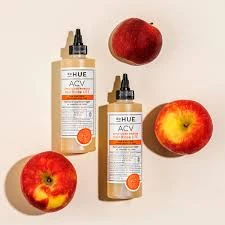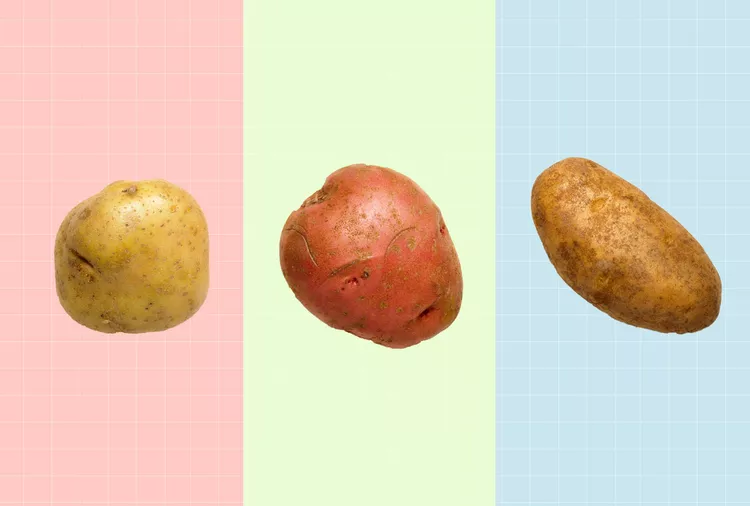Contents
- 1 The Benefits of Apple Cider Vinegar for Hair Care What You Need to Know
- 2 Why use ACV for hair care?
- 3 The Potential Benefits of Apple Cider Vinegar for Hair Care
- 4 How do I use ACV for hair care?
- 5 How to Create and Use an Apple Cider Vinegar Hair Rinse
- 6 Things to watch out for
- 7 Frequently asked questions
The Benefits of Apple Cider Vinegar for Hair Care What You Need to Know
Apple cider vinegar hair rinse: Apple Cider Vinegar (ACV) is a natural condiment created by fermenting apples with live cultures, minerals, and beneficial acids. This powerhouse ingredient is widely recognized for its antibacterial, antifungal, and antiviral properties, making it a popular choice in home remedies apple cider vinegar hair rinse.
When it comes to hair care, ACV is believed to offer several benefits. It may improve scalp health, help to strengthen hair, and even enhance its natural shine. Many users report that ACV can help relieve an itchy scalp and fortify thinning hair, contributing to a healthier and more vibrant appearance.
However, it’s essential to acknowledge that the scientific research supporting these hair benefits is still quite limited and presents mixed findings. Despite its popularity in natural hair care routines, more studies are needed to fully understand its efficacy.
Curious about incorporating ACV into your hair care routine? Read on to discover the potential benefits, risks, and best practices for using apple cider vinegar on your hair.
Bottom of Form
Why use ACV for hair care?

The Potential Benefits of Apple Cider Vinegar for Hair Care
Apple cider vinegar (ACV) offers a variety of potential benefits for hair care, making it a popular choice among natural beauty enthusiasts.
Acidity and pH Balance
apple cider vinegar hair rinse One of the key features of ACV is its high acidity, primarily due to the presence of acetic acid, which contributes to its distinct smell and flavor. The natural pH level of hair ranges from 3.67 to 5.5, indicating that it is slightly acidic. In contrast, substances with a pH value above 7 are considered alkaline. When hair appears dull, brittle, or frizzy, it often indicates a higher pH level, meaning it may be too alkaline apple cider vinegar hair rinse.
Incorporating an acidic substance like ACV, which has a pH between 2 and 3, may help restore the natural pH balance of the hair. By lowering the pH, ACV could enhance hair’s smoothness, strength, and shine. However, it’s worth noting that no scientific studies have directly explored ACV’s specific role in regulating hair pH levels.
Antimicrobial Properties
apple cider vinegar hair rinse Beyond its acidity, ACV is well-known for its antimicrobial benefits. This home remedy can effectively combat various bacteria, including Escherichia coli and Candida albicans. It has also shown promise in eliminating Staphylococcus aureus, a common bacterial agent responsible for folliculitis—a condition that can contribute to hair loss apple cider vinegar hair rinse.
Research indicates that the acetic acid in ACV possesses antibacterial, antifungal, and antioxidant properties, making it beneficial for addressing scalp issues such as head lice and itchiness (pruritus). Additionally, ACV may aid in the healing process of wounds and infections on the scalp. However, it is crucial to exercise caution, as highly concentrated ACV solutions can potentially irritate or damage the skin.
apple cider vinegar hair rinse By understanding these benefits, you can make informed choices about incorporating apple cider vinegar into your hair care regimen for healthier, more vibrant locks .
How do I use ACV for hair care?

How to Create and Use an Apple Cider Vinegar Hair Rinse
Incorporating an apple cider vinegar (ACV) wash into your hair care routine is both simple and effective. Here’s how to do it:
- Mix the Ingredients: Combine 2 to 4 tablespoons of ACV with 16 ounces of water in a bowl or a spray bottle. Adjust the amount of ACV based on your hair type and sensitivity.
- Apply After Shampooing: After thoroughly shampooing and conditioning your hair, evenly pour the ACV mixture over your hair, ensuring you work it into your scalp. This will help in achieving optimal results.
- Let It Soak: Allow the mixture to sit for a couple of minutes to let the beneficial properties of ACV penetrate your hair and scalp.
- Rinse Thoroughly: Rinse your hair thoroughly with cool water to remove the ACV mixture. This will leave your hair feeling refreshed and revitalized.
For best results, consider using the ACV rinse in your hair care regimen twice a week. This can help enhance shine, balance pH levels, and promote overall scalp health, giving you beautiful, healthy hair.
Bottom of Form
Things to watch out for
Important Considerations When Using Apple Cider Vinegar for Hair Care
Using apple cider vinegar (ACV) for hair care is all about restoring balance, but it’s essential to use it wisely to avoid potential issues. ACV contains acetic acid, which can be caustic, leading to possible skin irritation or burns if misapplied.
For instance, a 2015 case report highlighted a young girl who suffered scarring from a skin burn after directly applying undiluted ACV to her nose. This serves as a crucial reminder of the importance of diluting ACV with water before applying it to your scalp or skin. Always remember to maintain a safe ratio to protect your skin.
Moreover, it’s vital to keep ACV away from your eyes. In case of accidental contact, rinse your eyes thoroughly with water immediately. By taking these precautions, you can safely enjoy the benefits of apple cider vinegar for healthier hair without the risk of irritation.
Frequently asked questions
Using Apple Cider Vinegar for Optimal Hair Care: Timing and Tips
When incorporating apple cider vinegar (ACV) into your hair care routine, the best practice is to use it after shampooing. Shampooing first effectively cleanses your hair, scalp, and follicles, allowing the ACV to work more effectively.
As for how long to let your hair soak in ACV, there is no official guideline. However, a 2021 review suggests that rinsing with vinegar for 20 to 30 minutes can offer antimicrobial benefits, while a 3-minute soak has been found helpful for removing nits. To start, it’s wise to begin with shorter soaks of up to 10 minutes to monitor how your hair reacts and to avoid any potential side effects.
If you’re dealing with frizzy hair, apple cider vinegar may help enhance the acidity of your hair, potentially benefiting its texture. However, it’s worth noting that there is currently no research directly linking ACV to improvements in frizzy hair.
For those looking to tackle scalp fungus, a simple ACV wash made from 2 to 4 tablespoons of apple cider vinegar mixed with 16 ounces of water can be applied to the scalp twice weekly after shampooing.
Takeaway: Many individuals believe that ACV can help strengthen hair and enhance its shine by balancing the pH levels of the hair and scalp. Additionally, its antibacterial, antimicrobial, and antifungal properties may contribute to improved hair health. However, it’s crucial to remember that ACV should not be solely relied upon for addressing inflammation or scalp conditions such as dandruff, as research on its effects on hair health is quite limited. If you’re unsure about the best products for your hair, consider consulting a healthcare professional for personalized recommendations.
Skin patch test
Conducting a Skin Patch Test Before Using Apple Cider Vinegar Wash for Hair
Before incorporating an apple cider vinegar (ACV) wash into your hair care routine, it’s crucial to perform a skin patch test. This simple step can help you gauge how your skin reacts to ACV and identify any potential allergens.
To conduct a skin patch test, follow these steps:
- Apply a small amount of ACV wash to the inside of your wrist.
- Wait for 48 hours to monitor any signs of an allergic reaction.
During this time, watch for symptoms such as:
- Irritation
- Skin discoloration
- Small bumps (hives)
- Itchiness
If you notice any of these reactions, promptly wash the area with water and consult a healthcare professional. They can provide guidance and suggest alternative home remedies for your hair care routine that may be better suited to your skin’s sensitivities. Taking this precaution can help ensure a safe and effective experience when using ACV for your hair.








